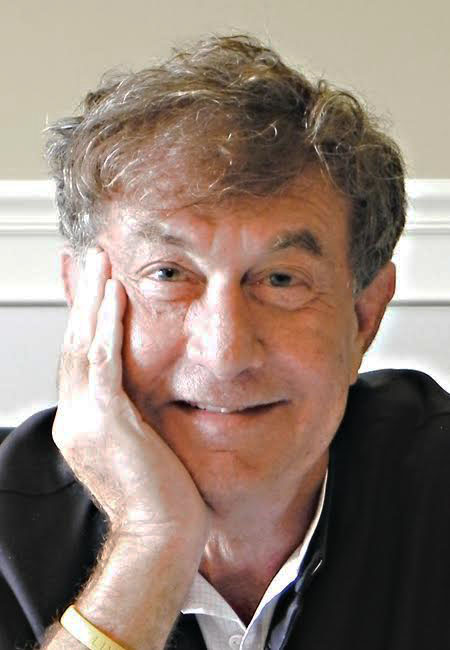PROVIDENCE, R.I. [Brown University] — A new institute being established at Brown University in collaboration with Hasbro Children’s Hospital and Women & Infants Hospital of Rhode Island aims to make a transformative impact on the health of children, including targeting autism, asthma, obesity, and other urgent problems affecting the health of children.
With a gift of $12.5 million from the family of retired Hasbro Chairman and CEO Alan Hassenfeld, Brown will establish the Hassenfeld Child Health Innovation Institute to accelerate progress on the urgent health needs of the smallest state’s smallest residents.
Brown President Christina H. Paxson and Hassenfeld joined Rhode Island Gov. Gina Raimondo and other leaders at the State House Monday, Sept. 28, 2015, to announce the new institute, which will launch a child health focus from pregnancy through young adulthood, including three initial initiatives:
- Healthy Weight, Nutrition, and Physical Fitness;
- Autism, a Precision Medicine Approach; and
- Childhood Asthma Research Innovation.
Brown will raise $12.5 million to match the Hassenfeld family’s founding gift, supporting an integrated approach to research, clinical practice, public health efforts, and educational programs.

“My greatest hope is that when we look back 10, 20, 30 years, we will have created global solutions to alleviating some of these child health conditions.”
“With Alan Hassenfeld’s generosity and vision, we will bring the strength of Brown’s research expertise together with our affiliated hospital and community partners as never before to transform child health in Rhode Island,” Paxson said. “This is an unprecedented opportunity for cross-institutional collaboration to address critical health needs of a vulnerable population.”
Brown’s School of Public Health and its Warren Alpert Medical School have brought together leaders from both of the state’s major hospital networks to forge important partnerships that will contribute to the institute’s success, Paxson said.
“I must thank Alan and his family on behalf of the entire Brown community for the opportunity to develop a collaborative model that will make a real impact in the lives of families,” Paxson said.
Hassenfeld, a former Brown trustee, said his family’s long commitment to children inspired him to work with the University to identify a set of initiatives that could make a lasting difference.
“Many excellent doctors have researched areas of child health and brought us to a certain level, and the question is, Can we take those past learnings and create something even more impactful?” Hassenfeld said. He explained that the inspiration for which areas of child health to target at the new institute came from researchers and doctors at Brown, Women & Infants Hospital, and Hasbro Children’s Hospital, the pediatric division of Rhode Island Hospital for which Hasbro Inc. provided lead funding under the Hassenfeld family’s leadership more than two decades ago. Researchers from other institutions, such as Bradley and Butler hospitals, will also be partners.
“My greatest hope is that when we look back 10, 20, 30 years, we will have created global solutions to alleviating some of these child health conditions,” Hassenfeld said. “I know we can’t remove them, but at least we can put the dollars behind research that will develop innovative approaches that help us truly move the needle in significant ways.”
Raimondo said by bringing together public, private, and university partners, Rhode Island will be uniquely positioned to spur its innovation economy and become a leader in children’s health.
“This new collaboration has my full support, especially as a mom of two young kids,” Raimondo said. “Not only will this innovative institute help give kids a chance to be healthy and thrive, but it will also showcase our incredible relationships and talents across health care, universities, and government. This partnership across government, health care and the university will help spark our state’s comeback, providing opportunity for everyone to make it in Rhode Island.”
Across many new programs, the institute will work to produce an understanding of the important influencers of child health, said Dr. Jack A. Elias, dean of medicine and biological sciences at Brown. Researchers and clinicians will then apply their findings to improve health.
“The work of the Hassenfeld Child Health Innovation Institute will contribute to our understanding of the genetic, prenatal, and early life factors associated with health problems of children,” Elias said. “This will allow us to develop effective new strategies for prevention and treatment.”
Improving child health will benefit children, their families, and their communities not only in Rhode Island, but also beyond, added Terrie Fox Wetle, dean of the Brown University School of Public Health.
“Through its work the institute can improve the health of entire communities, enhance the lives of families, and help children thrive in school and their future endeavors,” Wetle said. “The research findings we produce and the training we provide to our students will also extend these benefits to the nation and the world. We look forward to building a center that is a national leader.”
Innovative initiatives and programs
The institute will launch at the beginning of 2016 under the leadership of an executive committee composed of Dr. Phyllis Dennery, the Sylvia K. Hassenfeld Professor and Chair of Pediatrics at Brown and pediatrician-in-chief at Hasbro Children’s Hospital; Dr. Maureen Phipps, the Chace-Joukowsky Professor of Obstetrics and Gynecology at Brown, chair of the Department of Obstetrics and Gynecology, and executive chief of obstetrics and gynecology at Women & Infants Hospital; and Dr. Patrick Vivier, the Royce Family Associate Professor of Teaching Excellence, associate professor of health services, policy and practice and of pediatrics at Brown, and director of general pediatrics and community health at Hasbro Children’s Hospital.
The team will build a core research and evaluation unit with all the statistical, bioinformatic, genomic, epidemiologic, and medical expertise needed to conduct rigorous and effective studies of myriad childhood health issues. In all cases, these efforts will succeed with the partnership of Rhode Island families.
“The collaboration, partnerships, focus, dedication, and resources brought together to develop this initiative have set the stage for having a lasting, positive impact on the lives of children, families, and communities in Rhode Island,” Phipps said. “The Hassenfeld Child Health Innovation Institute highlights the commitment of Rhode Island leaders to continuing to shine as a national model for children’s health and advancing community health.”
The inaugural focus of the institute’s work will be on the three initiatives — autism, asthma, and nutrition and fitness — in which teams of researchers will develop innovative new solutions over the next six years.
“These initiatives are at the heart of pediatric health,” Dennery said. “We have seen epidemics in all three areas and can attribute these in part to environmental factors facing vulnerable children and families. Clearly, the issues we have identified can be better addressed through targeted therapies and interventions. The institute will seamlessly coordinate our collective system-wide efforts to address these challenges.”
In “Healthy Weight, Nutrition, and Physical Fitness,” the institute will engage in studies and interventions addressing factors, even before birth, that can place children at risk for excess weight, poor nutrition or low physical activity as they grow up. These range from the mother’s health and environmental exposures during pregnancy and after birth, to neighborhood conditions such as safety for outdoor play and the availability of healthy food. The work will build on the leadership of Miriam Hospital’s Weight Control and Diabetes Research Center in confronting these factors.
For “Autism, a Precision Medicine Approach,” researchers will build on the work of the Rhode Island Consortium for Autism Research and Treatment, which has developed a registry of more than 700 families affected by autism spectrum disorders. The initiative will develop and test protocols for integrating genomic and other biomarker information into autism diagnoses to provide fine-tuned clinical care.
In some areas of the state, such as Greater Providence, more than a quarter of children in some schools have asthma. The Childhood Asthma Research Innovation initiative will build on current work at Hasbro Children’s Hospital to dig deeper into the complexities of asthma’s causes and treatment, especially among different subgroups of children. Researchers will look at genes, stress, environmental factors, and treatment adherence. They’ll develop new programs and interventions, particularly to address disparities in outcomes among the state’s children.
“There is no greater investment than the health of our kids,” said Elizabeth Roberts, secretary of Health and Human Services. “How healthy you are in childhood has a profound impact on your education, health, and opportunities for success later in life. I’m pleased by this new partnership, which will help more Rhode Island families raise healthy kids and contribute to statewide efforts to build healthy communities and a more vibrant economy in Rhode Island.”
In addition to the research core and these initiatives, the institute will also create programs to promote research and teaching in other ways:
- Hassenfeld Child Health Innovation Awards. Faculty members can apply for seed grant funding for innovative ideas in children’s health. Such grants fund preliminary work needed to earn major research grants.
- Hassenfeld Child Health Scholars. To engage and train undergraduates and graduate students, as well as early-career physicians, the institute will provide summer research and classroom programs and clinical and research fellowships on topics in child health.
- Workshops, symposia and lectures. In venues at Brown and beyond, the institute will host events on subjects such as healthy weight, child development, injury prevention, maternal health, precision medicine and other topics related to its work.
A donor’s vision
Hassenfeld’s family has a long history of supporting children’s health. In addition to the Hasbro company’s leadership in the opening of Hasbro Children’s Hospital in 1994, the family established the Stephen D. Hassenfeld Children’s Center for Cancer and Blood Disorders at New York University’s Langone Medical Center in 2011, has funded the new Hassenfeld Pediatric Center to be completed at NYU in 2017, and at Brown established the Alan G. Hassenfeld Professorship of Pediatrics and the Sylvia Kay Hassenfeld Professorship of Pediatrics.
“All of our incredible success is because of children the world over,” Hassenfeld said, referring to the prominence of his family’s toy and game company, Hasbro. “We always have been a family that has tried to give back to our community, and to women and children around the globe.”
Hassenfeld emphasized that the gift to establish the new child institute reflects the commitment of his entire family, including his wife, Vivien, and sister Ellen Hassenfeld Block. It also continues a long history of engagement with Brown, from which several Hassenfelds have graduated, including his cousins John Hassenfeld, Benjamin Robbins and Richard Engle, two of his uncles, and also Alexander Casdin, the spouse of Hassenfeld’s niece, Susan Block Casdin.
Alan Hassenfeld himself has served in numerous leadership roles at Brown, including as a member of the Advisory Council on India, the Advisory Council on Biology and Medicine, and the Medical School Board of Overseers.
“What it comes down to is two things: We have tremendous confidence in the success of this institute that aligns with strong work being done at Brown,” Hassenfeld said. “And the other is that I really do believe our greatest national resource is our children. My job where I sit today is to do whatever I can to maybe bring a smile where there has been a tear. With this institute, we feel we can truly make a difference.”

